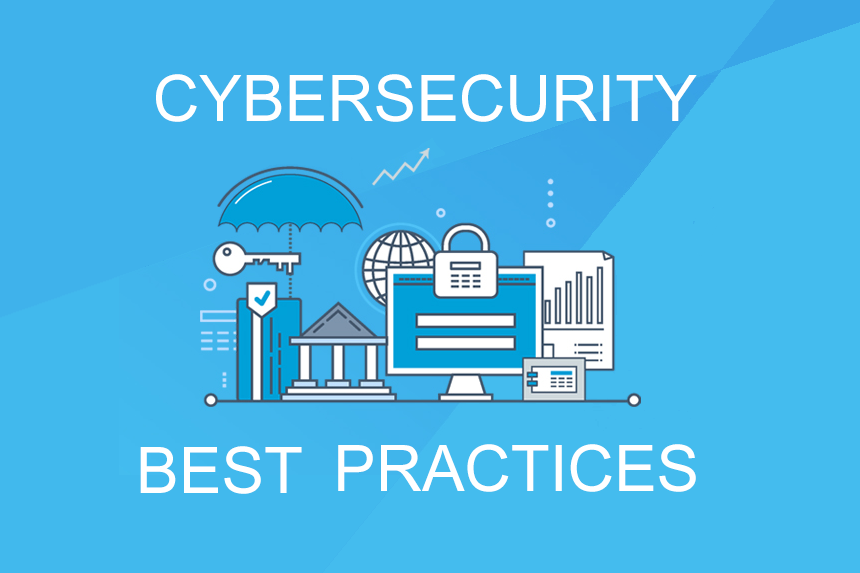
In the bustling arena of contemporary business, artificial intelligence in business is not just a buzzword - it's a transformative force. Your journey towards leveraging AI for competitive advantage is about much more than riding a wave of tech trends; it's about architecting a future where your organization thrives through innovation.
Imagine harnessing the power of AI for business optimization, setting you apart from the competition. Creating value with machine learning translates into tangible benefits that orchestrate growth and redefine market standards.
As you endeavor to integrate these advanced computational tools, the once complex data landscapes become rich sources of actionable insights, paving the way for smarter decisions and unrivaled efficiency in every operation.
The Strategic Imperative of AI in Enhancing Global Competitiveness

It is in this AI-centric landscape that Intel Corp.'s efforts to reassert its semiconductor leadership stand out, epitomizing the vigorous competition among global tech giants.
Intel's Ambition to Reclaim Semiconductor Leadership
Pat Gelsinger, CEO of Intel Corp., embodies the proactive leadership necessary to steer an industry titan back to the forefront of semiconductor manufacturing.
Through strategic maneuvers and investments, Intel is fighting to regain its preeminent position amid the intensifying dominance of industry stalwarts and the rising prowess of newer entrants.
At the heart of Gelsinger's ambitious agenda is a commitment to innovation and excellence in AI, thrusting Intel into a crucial role within the AI-enabled future of technology and commerce.
Challenges and Opportunities for AI-Powered Businesses
While the march towards AI revolution is underway, businesses grapple with intrinsic challenges and golden opportunities. The ascent of AI in business operations necessitates a keen understanding of market demand shifts and the ability to navigate through the technological disruption.
Enterprises engaging with AI must tackle hurdles such as data integration, skill gaps, ethical implications, and ensuring the effectiveness of AI implementation strategies, all while gleaning the substantial efficiencies and capabilities AI proffers.
Intel Vs. Global Tech Giants on AI Frontiers
In an arena where semiconductor prowess is synonymous with AI capabilities, Intel is entrusted with outperforming global tech giants who are also fiercely vying for a share of the AI frontier. The company's pursuit to scale the heights of AI innovation positions it against advanced micro-device specialists like AMD and Nvidia, as well as behemoths like Apple Inc., which tailor chips to their extensive product ecosystems.
Intel's recalibrated direction towards becoming a powerhouse in chip design and manufacturing signals a pivotal moment - a strategic sprint against the best in the semiconductor landscape.
The strategic importance of AI implementation in the semiconductor industry and its impact on business competitiveness and technological leadership:
- Enhanced AI implementation strategies must be leveraged to gain a tactical edge over competitors.
- Businesses stand to witness remarkable operational improvements and refined customer experiences through AI.
- Intel's quest for semiconductor supremacy is not just a business objective but a matter of national strategic importance.
- The intersection of AI and semiconductor innovation is where the future battleground of tech leadership is being drawn.
Your engagement with these transformative technologies is not just about adopting a new suite of tools; it's about comprehensively reshaping the way your business interacts with customers, develops products, and secures its market position.
As you delve deeper into the digital transformation era, the benefits of artificial intelligence in business become ever more clear, acting as a significant lever for global competitiveness. Recognizing this, companies are eagerly adopting AI implementation strategies to keep pace with the swift advancements and disruptive potential this technology holds.
Understanding AI-Driven Market Transformations

Previously, Intel Corporation led the way in both product design and the intricate process technology that underpins the semiconductor industry. However, more recently, companies like the Taiwan Semiconductor Manufacturing Company (TSMC) have surged ahead by adopting stable and conservative approaches to process development.
This shift in market dynamics underscores the critical role of manufacturing capabilities and the need for businesses to adapt swiftly to leverage the full potential of AI technologies.
Ben Bajarin, a leading analyst from Creative Strategies, has articulated these industry shifts, highlighting the urgency for companies to enhance their process technologies and to forge stable manufacturing partnerships. Such partnerships are integral for catalyzing business growth in an era where technological advancements are unrelenting and competition among global leaders is fierce.
| Year | Intel's Market Position | TSMC's Market Position | Key Industry Trend |
|---|---|---|---|
| 2000s | Leading in design & process | Emerging foundry player | Innovation at core |
| 2010s | Challenges in keeping pace | Stable process development | Advanced chip demand rise |
| 2020s | Strategic redirection | Market leadership | Integration of AI-driven processes |
It's clear that the adoption of AI technologies and the strategic application of these innovations are indispensable for any entity vying for supremacy in today's market.
Lessons and insights from the semiconductor industry and its relationship with AI advancements:
- Intel's journey reflects the harsh realities of industry where only perpetual innovation ensures leadership.
- TSMC's ascendancy signifies the value of predictability and steady growth in the semiconductor sector.
- The semiconductor industry, as demonstrated, is a barometer for wider market transformations facilitated by AI advancements.
Your understanding of these market transformations equips you to strategize and align your business growth with the advent of AI-driven innovations.
In the rapidly evolving landscape of modern business, understanding market transformations is pivotal for staying ahead. These transformations are particularly noticeable in the semiconductor industry, which has witnessed significant changes thanks to technological innovation and the integration of AI-driven solutions for business growth.
Artificial Intelligence in Business: Creating Value with Machine Learning

In the digital age, your business's ability to innovate hinges on effectively capturing and utilizing data. The advent of artificial intelligence (AI) has introduced revolutionary capacities for analysis, prediction, and efficiency within the operational fabric of your enterprise.
Leveraging AI-driven decision-making and machine learning applications in business is not just about embracing new technology - it's about transforming data into a strategic asset that underpins every decision.
Empowering Decision-Making with Data Insights
The analytical prowess afforded by AI equips you to make decisions that are not just educated guesses but are precisely informed by empirical data insights. AI algorithms offer a granular view of your business landscape, highlighting opportunities for optimization and innovation that were previously obscured by the limitations of human cognition.
Data-Driven Strategies: Pivoting from Intuition to Intelligence
The transition from intuition-based to intelligence-driven strategies is critical in the current business ecosystem. Data-driven strategies enable you to anticipate market trends, understand customer behavior, and retrofit your business model and innovate to stay ahead of the curve. Machine learning serves as the engine driving this transformation, turning vast datasets into predictive models that form the backbone of strategic planning.
Machine Learning Applications Across Industry Verticals
From finance to healthcare, machine learning applications have permeated every industry, acting as a catalyst for innovation and performance enhancement. Whether streamlining supply chain processes, enhancing customer engagement, or unlocking new product development pathways, AI is a linchpin for heightened business performance.
| Industry Vertical | Machine Learning Impact | Outcome |
|---|---|---|
| Retail | Personalization Engines | Increased Customer Loyalty |
| Manufacturing | Predictive Maintenance | Reduced Operational Costs |
| Healthcare | Diagnostic Accuracy | Improved Patient Outcomes |
| Finance | Fraud Detection | Enhanced Security and Trust |
In harnessing the transformative power of AI and machine learning, you are not simply employing new tools; you are fundamentally redefining the capabilities of your business. Embrace the journey towards a more intelligent enterprise, where every decision is data-driven, and machine learning empowers your strategies with unprecedented precision and foresight.
Overcoming Obstacles in AI Implementation

When venturing into the realm of artificial intelligence, businesses confront an array of challenges that can impede the successful implementation of AI systems. By identifying and strategyzing around these challenges, companies can unlock the transformative potential of AI and ensure a competitive edge in an increasingly digital marketplace.
To surmount these hurdles, your approach must be multifaceted, addressing everything from the technical complexities of AI integration to the imperative of safeguarding data privacy.
The Role of Collaboration in Smoothing AI Integration
Key to overcoming AI implementation obstacles is fostering robust business collaboration. Harnessing the insights and expertise of stakeholders across various departments can aid in smoothing the AI integration process.
Furthermore, collaborating with tech partners and AI experts can provide access to cutting-edge knowledge and ensure that your AI solutions are not only advanced but also seamlessly integrated into existing business operations.
Effective strategies for implementing AI in business:
- Invite stakeholders to contribute their expertise to shape AI strategies.
- Partner with AI security specialists to reinforce system integrity.
- Utilize collaborative platforms to align AI goals with broader business objectives.
Addressing Ethical and Technological Concerns
Navigating the ethical landscape of AI deployment is critical, as it underpins public trust and compliance with regulatory standards. Ethical AI frameworks need to be designed and strictly followed to ensure that AI systems operate fairly and without bias. This requires ongoing dialogue with ethicists, legal teams, and technologists to preemptively address potential ethical dilemmas and steer clear of reputational harm.
How to promoting responsible AI practices and ethical considerations:
- Implement regular AI ethics training for relevant teams.
- Engage with policy-makers to advocate for responsible AI development.
- Develop transparent AI systems that users can trust and understand.
Ensuring Data Privacy and Security in AI Platforms
At the core of AI utilization lies the need for robust data privacy and security measures. As AI platforms process vast amounts of personal and sensitive data, implementing stringent security protocols is non-negotiable. Companies must uphold the highest standards of data privacy to protect against breaches that could compromise customer trust and corporate credibility.
| AI Security Aspect | Industry Best Practices |
|---|---|
| Data Encryption | Utilize advanced encryption standards to protect data both at rest and in transit. |
| Access Controls | Strictly regulate who can access AI platforms and under what circumstances. |
| Regular Audits | Conduct frequent security audits to identify and rectify vulnerabilities. |
| Incident Response Planning | Have a clear, actionable plan for responding to any data security incidents. |
Staying proactive about these security measures not only fortifies your AI platforms against external threats but also fosters a culture of security within your organization.
Investing in AI Capabilities for Long-Term Success
Thrusting your business into the future often requires more than a mere alignment with current trends; it demands strategic growth through smart investments. Investing in AI stands at the forefront of these pivotal decisions. As you navigate the path toward long-term business success, the integration of sophisticated AI capabilities within your operational framework cannot be understated.
Let's delve into the reasons why funneling resources into AI technology transcends a typical capital venture, shaping itself as a beacon of innovation and sustainability for enterprises that dare to lead the charge.
Benefits of investing in AI capabilities for long-term success:
- AI amplifies efficiency, carving out new avenues of productivity previously untapped by human capacities alone.
- Through predictive analytics and automation, AI refines customer engagement, fostering loyalty and trust.
- Advanced AI technologies provide companies with robust competitive advantages, key to navigating market intricacies.
With the stakes in innovation towering ever higher, reluctance to embrace AI may not just stifle growth, but could signal the prelude to obsolescence. Let's explore how prominent industries position themselves on this essential pivot toward shaking hands with AI for future-proofing their enterprise.
| Industry | Role of AI | Impact on Business Longevity |
|---|---|---|
| Healthcare | Diagnostic assistance, patient data analysis | Exponential increase in treatment precision; longevity in medical innovation |
| Finance | Risk assessment, fraud detection | Enhanced security protocols; enduring trust from clients |
| Retail | Customer behavior analytics, inventory management | Adaptive business models poised for ongoing relevance |
| Automotive | Autonomous driving technology, supply chain optimization | Sustainable industry influence through cutting-edge vehicle technologies |
AI investment transcends traditional capital deployment; it's the cultivation of smart technology-powered ecosystems that burgeon into future empires of industry. This daring leap is the hallmark of a visionary perspective, where the marriage of artificial intelligence and corporate strategy ignites the engine of perpetual market relevance.
By investing in AI, you are not only adapting to the present but are actively scripting the future where your business stands resilient amid tides of technological transformation.
Cybersecurity Challenges and AI Solutions for Modern Businesses

In an era where digital threats evolve with alarming rapidity, the cybersecurity challenges your business faces are more complex than ever. To stay a step ahead of these evolving threats, AI solutions offer a beacon of hope, with the potent duo of AI and machine learning powering the next generation of cyber defenses.
These technologies not only bring efficiency to threat detection and response but also provide a dynamic shield adept at adapting to an ever-changing cyber threat landscape.
Enhancing Cyber Defenses with AI and Machine Learning
Your enterprise's security infrastructure can achieve new levels of protection through the integration of AI and machine learning cybersecurity. This powerful combination enhances your digital fortress by automating the identification of suspicious patterns, flagging outliers, and preempting cyber attacks before they reach critical assets.
By delegating repetitive and monotonous tasks to AI, your cybersecurity team can focus on strategic defense planning, ensuring that your defenses grow continually smarter and more resilient.
Collaboration Between AI Platforms and Cybersecurity Services
The collaboration between state-of-the-art AI platforms and cutting-edge cybersecurity services fortifies your security posture substantially. Such partnerships encourage the blending of expertise from different realms of technology, creating a robust bulwark against intrusions.
As threat actors wield increasingly sophisticated methods, your collaboration with AI solutions strengthens your capacity to respond with equally sophisticated and innovative measures, tightly securing your business's valuable digital assets.
The Importance of Continuous Learning in AI-Driven Security
What truly sets AI-driven security apart is its capability for continuous learning in AI. AI systems are designed to learn from each interaction, constantly updating algorithms to detect and neutralize the latest threats.
This ceaseless evolution is paramount in maintaining an edge over cyber adversaries. Your engagement with AI-infused cybersecurity isn't a one-time upgrade - it's a perpetual journey towards a more secure future, where intelligence gathers strength with every challenge encountered.
Source: Venngage
What key insights or strategies from the article do you find most compelling for leveraging artificial intelligence in business and driving competitive advantage?









